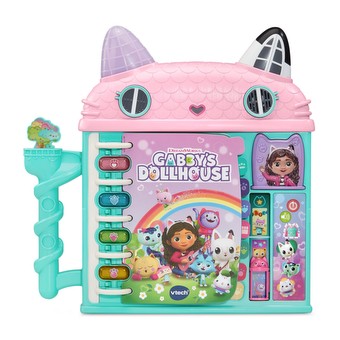Encourages social skills like sharing and teamwork
Many toys offer the opportunity for infants and children to play cooperatively. An example of early cooperative play is when a child hands a brick to another child who is building a tower. More complex types of cooperative play, such as social pretend play where children adopt roles, often occurs between two children who are friends. But cooperative play can happen between children who have never met before. This type of cooperative play can often be observed at the Baby Show where a number of infants and young children play cooperatively together with toys on the VTech stand. Young children’s cooperative and social skills are monitored by adults; parents, nursery assistants and teachers encourage cooperative play as it enhances social skills such as caring, sharing, helping and working together. Sometimes young children want to control a toy and don’t want to let other children play. At this point children benefit from an adult’s intervention and encouragement to share.
Cooperative play means that children are working towards a shared goal whether this is building a tower or engaging in social pretend play. Toys and games can facilitate cooperative play and fun activities become more engaging when more than one child is playing. Cooperative play benefits young children as it prepares them for cooperative learning in the classroom. There is a strong emphasis on children working together during lessons to achieve shared goals.










































